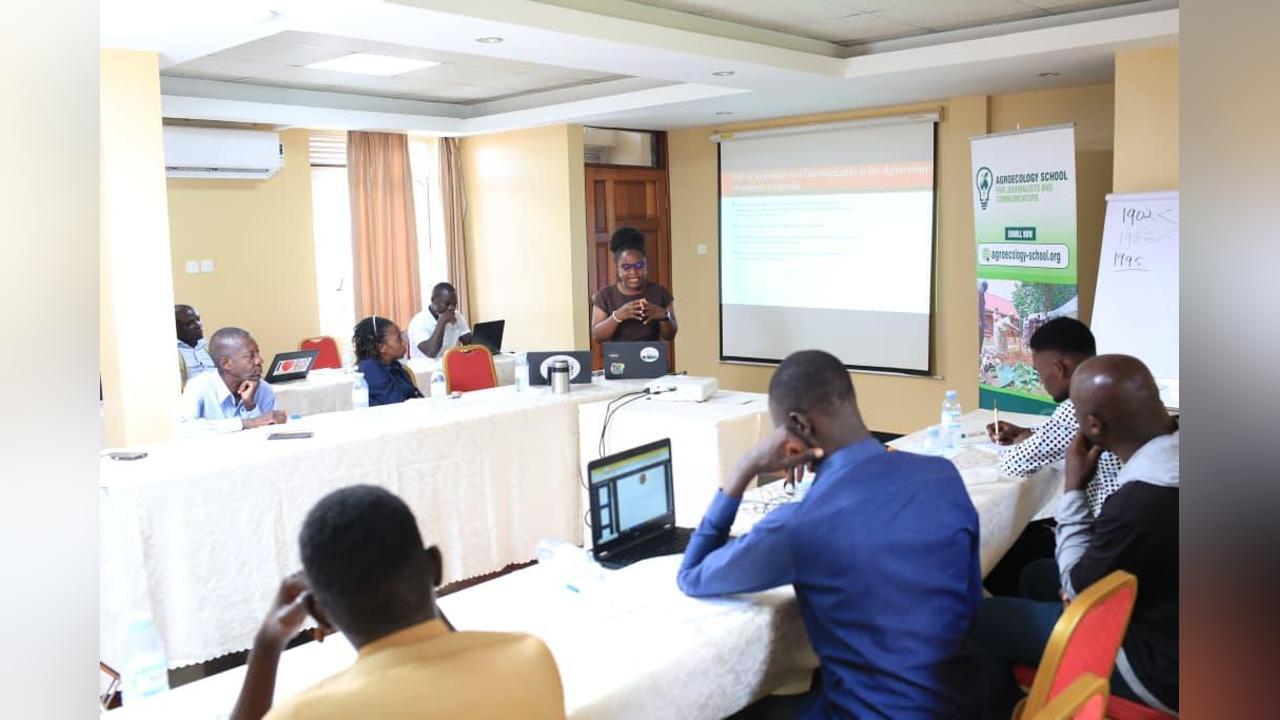Africa-Press – Uganda. The Eastern and Southern Africa Small-scale Farmers’ Forum (ESAFF Uganda) has trained journalists on land rights and agroecology, in an initiative aimed at strengthening reporting on Uganda’s fragile food systems.
The training comes amid increasing pressures from shrinking soils, land grabs, climate shocks, and erratic rainfall.
The programme sought to equip journalists with knowledge and investigative tools to highlight the link between secure land tenure and sustainable farming practices, while amplifying the voices of small-scale farmers who are often excluded from policy debates.
Speaking at the workshop, Ronald Bagaga, ESAFF Uganda’s Programmes Manager, stressed that secure land rights are the foundation for agroecology and rural livelihoods.
“Women still face customary barriers despite the Constitution and the 2013 Land Policy guaranteeing equal rights to natural resources,” Bagaga said.
“We cannot practice agroecology under tenure insecurities. Land is the heartbeat of food sovereignty. Journalists must craft stories that expose injustices, inspire justice, and drive change.”
He added that journalists, when well trained, can play a transformative role by holding leaders accountable, engaging the public in debate, and shaping narratives that promote farming systems which restore both dignity and soil health.
During the training, journalists explored the interconnectedness between land rights, agroecology, and food security.
They noted that without secure land tenure, smallholder farmers often lack the confidence to invest in sustainable practices such as agroforestry, composting, crop rotation, and water-saving technologies.
“When a farmer knows the land truly belongs to them, they invest not just for today but for the future. Without that assurance, fear takes over—and when farmers lose hope, the land itself suffers,” one participant observed.
The journalists collectively urged policymakers to prioritize land tenure reforms and integrate land rights into both agricultural and environmental policies. They argued that unless farmers are assured of their land, Uganda’s broader goals of food security, climate resilience, and sustainable development will remain elusive.
The workshop also emphasized the importance of access to information. Trainers encouraged journalists to rely on verified evidence, including official policy documents, environmental studies, and land records. This, they said, would help the media challenge misinformation while amplifying both the struggles and innovations of smallholder farmers.
“This training is not just about storytelling—it is about survival,” Bagaga added. “Uganda’s fragile food systems depend on voices that can expose exploitation, highlight solutions, and push for policies that protect the most vulnerable.”
The training reflects ESAFF Uganda’s broader mission of empowering journalists to elevate small-scale farmers’ concerns into national and regional policy debates, ensuring that land rights and agroecology remain central to the fight against hunger, poverty, and climate change.
For More News And Analysis About Uganda Follow Africa-Press






